A study by independent energy broker company Utility Bidder ranked Belize as second in countries most affected by natural disasters in 2022. According to the report, 42% of Belize’s population was affected in 2022, either directly or indirectly, by natural disasters, including tropical storms, flooding, and droughts.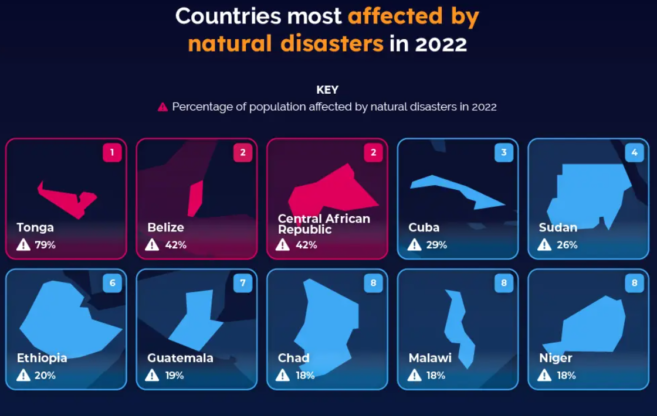
The report was compiled using data from natural disaster damage costs between 2012 and 2022 using Our World in Data, as well as considering the countries most at risk of natural disasters in general and those most exposed to earthquakes, cyclones, wildfires, floods, and drought. “Around the world, natural disasters have cost hundreds of billions of dollars. In 2022 alone, the total cost to the world was 178 billion euros. Climate change may be responsible for the increase in global natural disasters. Higher global temperatures increase the possibility of more droughts. Higher temperatures also lead to more water vapor being evaporated into the atmosphere, contributing to the intensity of storms. Warmer ocean surface temperatures can also increase wind speeds, increasing the risk of tropical storms. Rising sea levels expose more – and higher – locations to the erosive forces of waves and currents, increasing their risk of flooding,” states the report.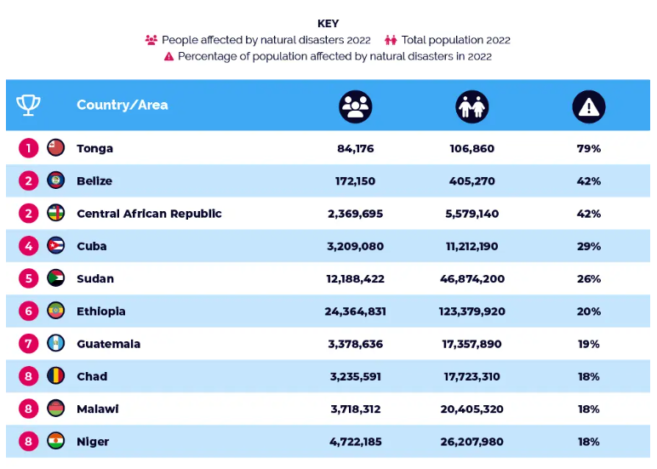
The information gathered indicates that over 172,000 people in Belize were affected by natural disasters in 2022, which is 42% of the population. The main contributor to the number of people affected was Hurricane Lisa, a category one hurricane with 85 mph winds. The storm landed in Belize on November 2, 2022, causing extensive damage to the Belize and Cayo District.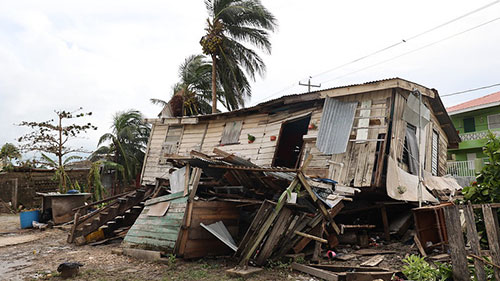
During the storm, Caye Caulker and Ambergris Caye experienced heavy rainfall with periods of gusty winds; however, the brunt of the hurricane’s damage was seen in Belize City and its surrounding communities. The storm caused significant structural damage, but the excessive rains also caused severe flooding in many areas of mainland Belize, causing residential and commercial damage. According to reports by the National Emergency Management Organization (NEMO), nearly 5,000 homes were damaged across Belize, and 500 were destroyed. Six thousand five hundred families were severely affected by Hurricane Lisa across the country, and the after-effects impacted 172,000 people. Total damage from Hurricane Lisa across Belize was estimated at USD 100 million.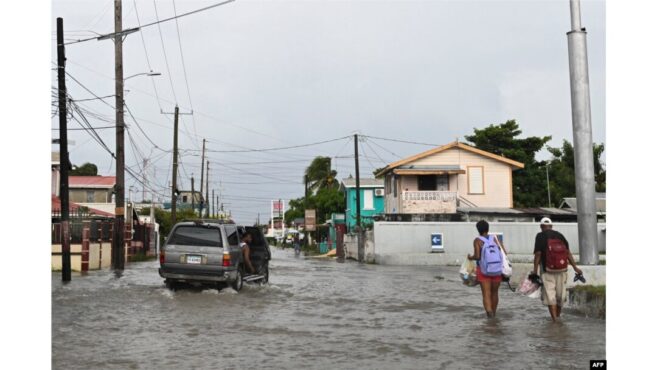
As a country, Belize has been working to improve its emergency response and mitigate disaster by implementing the Belize Climate Resilient Infrastructure Project (CRIP). The project aims to enhance the resilience of critical infrastructure to natural hazards, understand the impacts of climate variability, and strengthen the capacity of the national and local governments to manage climate resilience. Mitigation measures for the project include: protecting adjacent non-paved surfaces from asphalt overspray; minimizing stockpiles of construction debris near waterways; removing waste from work sites as soon as possible; cleaning up chemical or fuel spills immediately and transferring all clean-up materials to an appropriate disposal site; place waste away from drainage systems; remove waste from work sites as soon as possible; minimize removal of soil from banks during work along waterways; minimize material and waste debris stockpiles and locate away from drainage systems; keep drain systems clean, manually remove Water Hyacinth where necessary; encourage re-vegetation in areas where possible to prevent soil exposure; place wildlife crossing signs at key crossing points, such as along the George Price Highway that traverses the Central Belize wildlife corridor; and place speed bumps or other speed reduction or traffic calming measures at key crossing points and in the vicinity of protected areas.
Belize is primarily vulnerable to hurricanes, associated flooding, wind damage, and storm surge. According to the Natural Disaster Hotspot study by the World Bank, Belize is the 61st highest-exposed country for relative mortality risk from multiple hazards in the world and ranked 8th out of 167 countries for climate risk.
The report by Utility Bidder ranked the Republic of Tonga as the country most affected by natural disasters, with 79% of the population affected in 2022. Read the full report at: https://www.utilitybidder.co.uk/blog/global-weather-report/
A study reports that 42% of Belizeans were affected by Natural Disasters in 2022
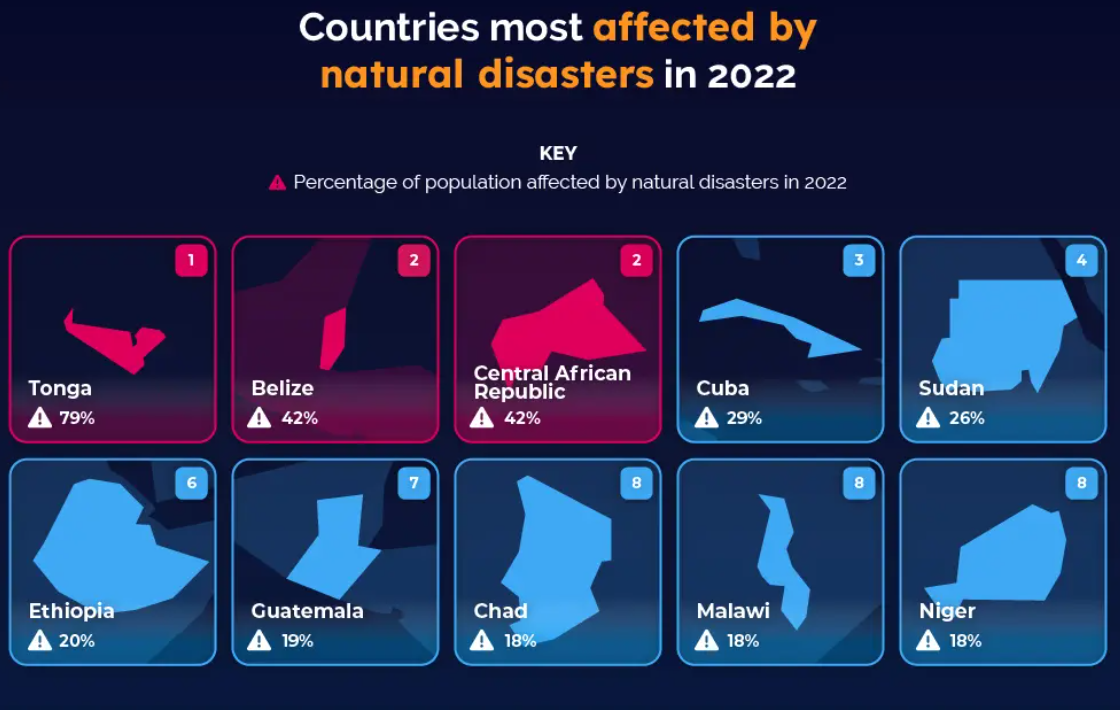
Share
Read more

